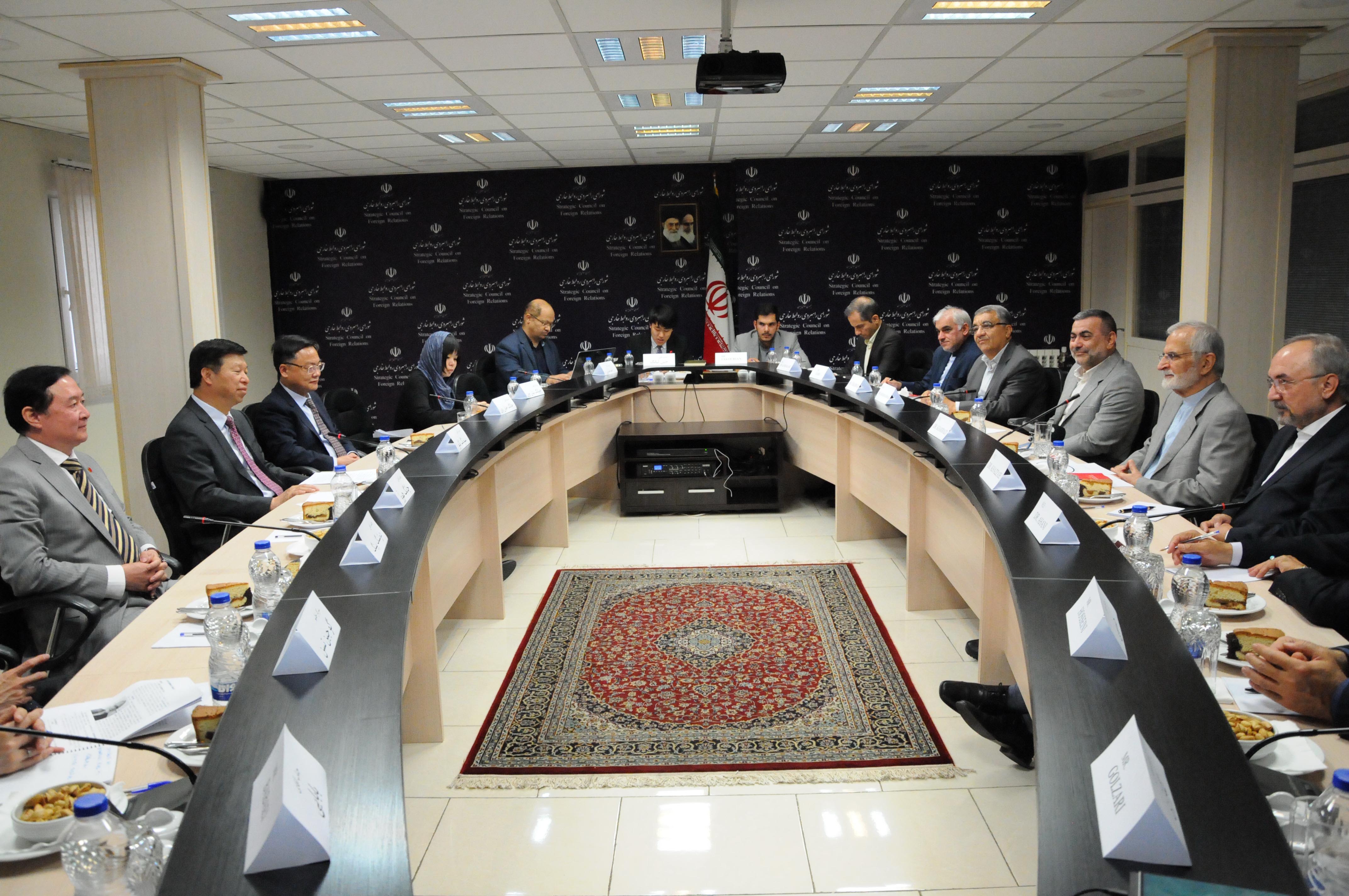Dr. Kamal Kharrazi Sunday hosted a delegation from China headed by H.E Song Tao, the Minister of International Relations of the Central Committee of the Communist Party. During the meeting, the two sides reviewed bilateral, regional, and international issues.
Referring to the emphasis placed by the Supreme Leader of Islamic Republic of Iran on expanding the relations with China, as well as the Joint Statement on Comprehensive Strategic Partnership between Iran, and China, signed by the two presidents, Kharrazi said that: “Iran and China are both opposed to the US unilateralism and hegemony.”
The SCFR President described US pressures on China as strategic policy of the United States and said: “Imposition of these pressures on China has been pursued by the Democratic and Republican administrations in different ways and will continue in the future.”
Dr. Kharrazi, noting that the US National Security Document cites China, Russia, and Iran as threats to the United States, said: “The document shows that the three countries that are under US threats and should work together in different strategic, development and economic areas in order to save their future.”
He said the economies of Iran and China are complementary and noted: “We should think about these relations as long term, and China should consider that putting pressure on some dependent states by the United States may create problems for Beijing on the supply of energy.”
The President of the Strategic Council on Foreign Relations emphasized on the expansion of security cooperation between the two countries and said while the United States is trying to destabilize the region by promoting war and aggression, Iran and China can contribute to the stability and reconstruction of the region.
Dr. Kharrazi described the interception and targeting of American drone and the seizure of the British oil tanker in the Persian Gulf as examples that Iran would not tolerate any aggression against its interests and security.
Pointing to US withdrawal from the Joint Comprehensive Plan of Action (JCPOA) and imposition of initial and secondary sanctions and also Europe’s procrastinations in fulfilling its commitments, he stated: “China is familiar with Iran’s morale and history, and it knows that Iranians will tolerate hardships, but do surrender to the bullying of foreigners. We hope that these difficult conditions will be over with the help of friends like China and Russia and the enemies will be disappointed in pursuing his plots.”
Minister Song Tao in reply appreciated Iran’s position in supporting China in the US-led trade war against Beijing. He also thanked Dr. Kharrazi for his proposals to consolidate bilateral relations. He said: “There are numerous capacities to expand bilateral relations and China considers Iran an intimate partner.”
Noting that China looks at relations and cooperation with Iran from a strategic and long-term perspective, the Chinese minister said: “China’s political resolve in developing ties with Iran and implementation of the JCPOA is irrevocable.”
The Chinese official also emphasized the necessity of boosting cooperation between the Ministry of the International Department of the Chinese Communist Party and the IRI Strategic Council on Foreign Relations. Pointing to the necessity of developing cooperation between Iran and China on regional issues, he said Beijing is well aware of Iran’s important role in the region.
Song Tao said that China understands Iran’s concern over the nuclear deal (JCPOA) and stressed that the United States is responsible for the deal being unimplemented.
Characteristics and Strategic Consequences of Iran’s Historic Response to Zionist Regime
Strategic Council Online—Opinion: There are two different views about the Islamic Republic of Iran’s missile attacks against the Zionist regime. The first view is based on a superficial reading and a reductionist description that evaluates it as a low-impact and not-so-extensive operation. The second view, a realistic reading, sees Iran’s response as opening a new page of “balance of power” and “turning point” in regional equations, the effects and consequences of which will gradually emerge.










0 Comments